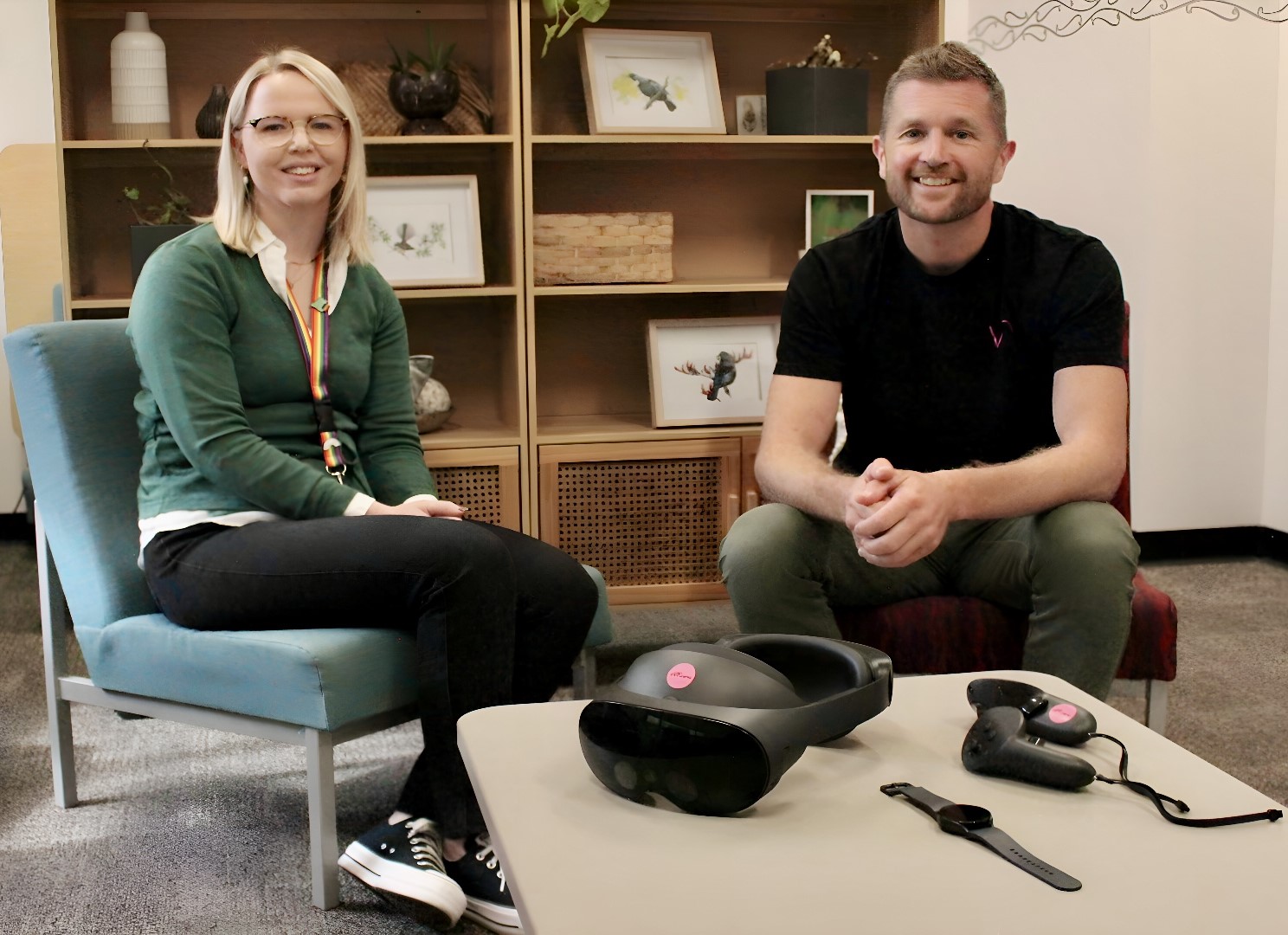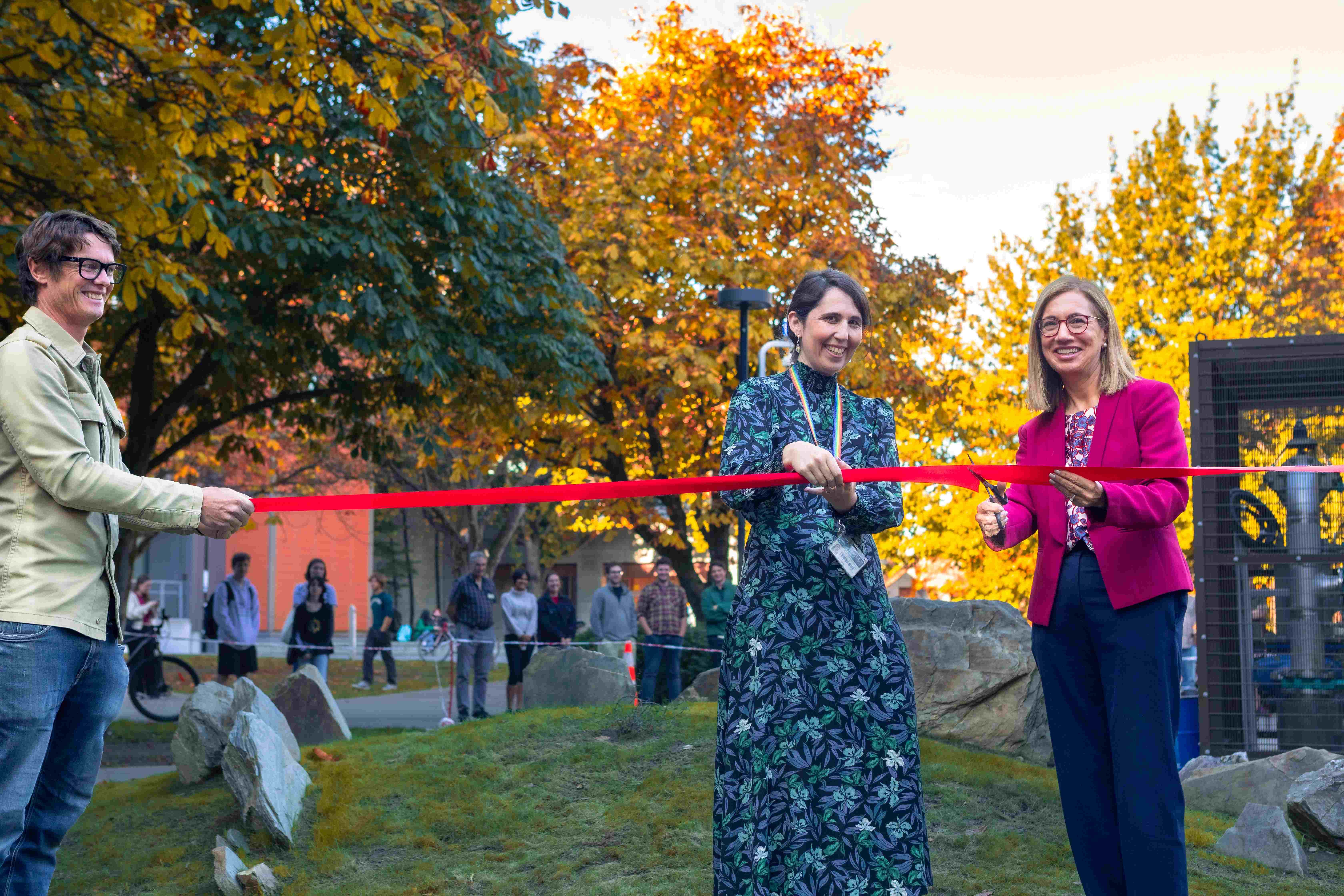Photo caption: Dr Rebecca Peer was one of two UC delegates to attend COP29 in person, while another 10 UC delegates attended online.
By Rebecca Peer
A mere 35 hours and 32 minutes after its scheduled end, COP29 officially came to a close – making it the fourth longest COP in history.
Tension builds during week 2
The second week of the international conference felt tense, with pressure to deliver outcomes, especially on climate finance.
In opening ministerial statements, many lamented the lack of progress on week one’s negotiations, called the draft decision texts “unacceptable,” and pleaded for the Presidency to consider overriding the previous week’s decision not to continue negotiations on mitigation. In the end, ministerial pairs were assigned to the remaining big items: climate finance, carbon markets, adaptation, mitigation, and the overall COP outcome. New Zealand’s Minister for Climate Change, Simon Watts, co-chaired negotiations on carbon markets (aka Article 6) with Singapore’s Minister Grace Fu.
Unlike week one, there was much more negotiating behind closed doors in week two. While there was a flurry of public plenaries with ministerial statements calling for action, these didn’t seem to translate into the draft decision texts. As an observer, this felt confusing and frustrating – I can only imagine what it felt like for the negotiating teams.
Progress on ‘the finance COP’
Discussions around climate finance understandably took centre stage at this year’s “finance COP.” Under the Paris Agreement, parties need to agree to a new goal this year. However, these discussions also tended to overshadow the other items up for debate, leaving some to suspect that deals on finance were needed before some parties would agree to negotiate other items.
Developing countries wanted to see an amount, ideally in the trillions, while developed countries wanted to talk first about the structure of the finance agreement: what is included and who is contributing. While the debate continued well into the second week, the prospect of achieving a deal seemed unlikely. There was a common phrase that “no deal is better than a bad deal” repeated throughout the venue’s halls. However, New Zealand’s lead negotiator, Todd Croad, assured us in our informal briefings that resolutions often seem far away heading into the late stages of a COP, seemingly hinting that the pressure of a looming deadline is often needed for parties to finally come together on a deal.
And this is indeed what we saw. As negotiations entered their final official day, developed countries still hadn’t offered a number for climate finance and little progress was made on other issues. A draft text offering US$250 billion by 2035 was tabled on Friday afternoon and quickly criticised for falling well short of developing countries’ needs. After overnight negotiations, a new text landed for $300 billion.
The COP President convened a closing plenary to pass through items where there was consensus. Among the approvals in this session was the final text on carbon markets and carbon trading. After those small successes, back to finance. In negotiations for the new draft on Saturday afternoon, small island nations and vulnerable countries walked out of the talks.
I avidly followed the live updates from those still on the ground as I journeyed home. Finally, after a diplomatic push, a deal on finance was agreed in the early hours of Sunday morning, along with text on mitigation. The new goal is US$300 billion by 2035, provided by developed countries to developing countries, with a total finance goal of $1.3 trillion in climate finance from all funding sources. Emerging economies like China have the option to voluntarily participate, and funding for the Adaptation Fund is to be tripled. No specific amount was noted for small island states or the least developed countries that will be most affected by climate change, but soft language calls for their special needs to be recognised.
Does COP matter?
So, this year’s COP achieved its two main goals of setting a new climate finance goal for the next five years and approving mechanisms for carbon markets. But this was not without difficulty, and many noted the deals at this COP are indeed “bad deals,” particularly for developing and small island countries . There were many calls during this conference to reform the COP, some calling it ”no longer fit for purpose.” But even if we need to make changes to the process, COP matters. And the fact that we have established this process to try to tackle an issue as big as climate change together is incredible.
In my observations of the past fortnight, it’s clear that negotiating global climate policy is tricky business. I was almost amazed any kind of consensus was reached by the conference’s end.
Reflecting on COP29, I was surprised at the thin thread of accountability discussions throughout the conference. Making sure we do what we said we would, feels important but can quickly turn into debates around carrots and sticks. I was also struck by the difference between the strong calls to action in public-facing statements and the lack of ambition in the final deals. We all know that staying in line with a 1.5 ºC pathway requires a huge global effort, so why are we being shy during the most important climate talks of the year?
If I’ve learned one thing from participating in the COP as an observer, it’s that we researchers have a much larger role to play in these big negotiations. Scientific guidance is critical for these negotiations, and we are well placed to give it. Despite the disappointing outcome of this COP for many, I’ve returned to Aotearoa with a renewed sense of purpose to continue researching and pushing for greater action on climate change.
Dr Rebecca Peer is a Senior Lecturer in the Faculty of Engineering researching energy transitions in Aotearoa and the Pacific. You can read her latest Conversation article about green hydrogen research here.
 Sustainable Development Goal (SDG) 17 - Partnerships for the goals.
Sustainable Development Goal (SDG) 17 - Partnerships for the goals.










